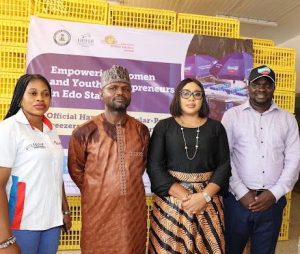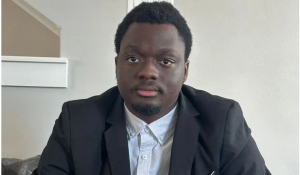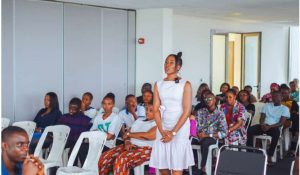
In a bid to impact to the environment positively, Nigerian Institution of Environmental Engineers (NIEE), Lagos State Chapter, has announced its plans to collaborate with the government and actively contribute to the development of technologies that will impact the environment positively.
This was made known by the chairman of the Institution, Eng. Yusuf Majolagbe, during his inaugural speech at his investiture ceremony as the 5th Chairman of the body in Lagos on Wednesday.
Majolagbe also said that the chapter is willing to collaborate with governments at various levels, the private corporations and other relevant stakeholders to develop smart policies, guidelines, and laws that key into the Sustainable Development Goals, SDGs, to achieve a Lagos State that would guarantee prosperity for today and future generations.
According to him, the practice of engineering, by its by nature, impacts, and influences the environment in one way or the other.
He noted that engineers registered with the division work in waste disposal, recycling, wastewater management, air pollution control, radiation protection, animal husbandry, and many areas affecting environmental sustainability and public health.
“However, society must realize that physical/regional planning and land use matter, chemical processes, electricity generation, transmission and distribution, mechanical vehicular discharges, and everything around us directly or indirectly impact our environment.”
The new NIEE chairman said, he would work to build on the succeses of his predecessor, adding that, “I will work to promote the importance of environmental engineering and to support the growth of the profession.
“We will do this by organizing more training programs, workshops, and seminars, as well as by providing resources and networking opportunities for our members.”
Delivering a paper on Spatial Technology in Development Planning for a Circular Economy in Lagos state, the Special Adviser to the Lagos State Governor on e-GIS and Planning Matters, Dr. Olajide Abiodun Babatunde, said a circular economy emphasizes the sustainable use of resources by minimizing waste and maximizing economic value.
He said, Lagos, being the largest city in Nigeria and one of the fastest growing in Africa, is facing a number of environmental challenges, including waste management and inefficient use of resources.
Dr Babatunde said, “It’s time for us to take action and find new, sustainable ways to manage our resources, the circular economy provides a solution to these challenges by promoting a more sustainable use of resources and waste reduction.”
He said spatial technologies, such as Geographical Information System, GIS, remote sensing, geospatial analytics and drones, can provide Nigeria with a wealth of data and information that can help the government make informed decisions about how the nation’s resources are used and managed.
“This information can be used to optimize resource management by identifying areas where waste can be reused, recycled, or recovered, and areas where new infrastructure can be built to support a circular economy.
“Geospatial analytics, which combines GIS and remote sensing data with other data sources, can be used to create models of the waste management system, allowing decision-makers to see the impacts of different waste management strategies and make informed decisions.”
Speaking on, exploring global trends to achieve a circular economy for Lagos state, and the business case, the Executive Vice President, Oando Clean Energies, Ademola Ogunbanjo, said the necessity of circular economy is not a debate but how to entrench it in Lagos State and Nigeria as a whole.
He advocated drastic reduction in consumption by the people as this will indirectly lead to reduction in production activities and ultimately decrease in the extraction of raw materials.







